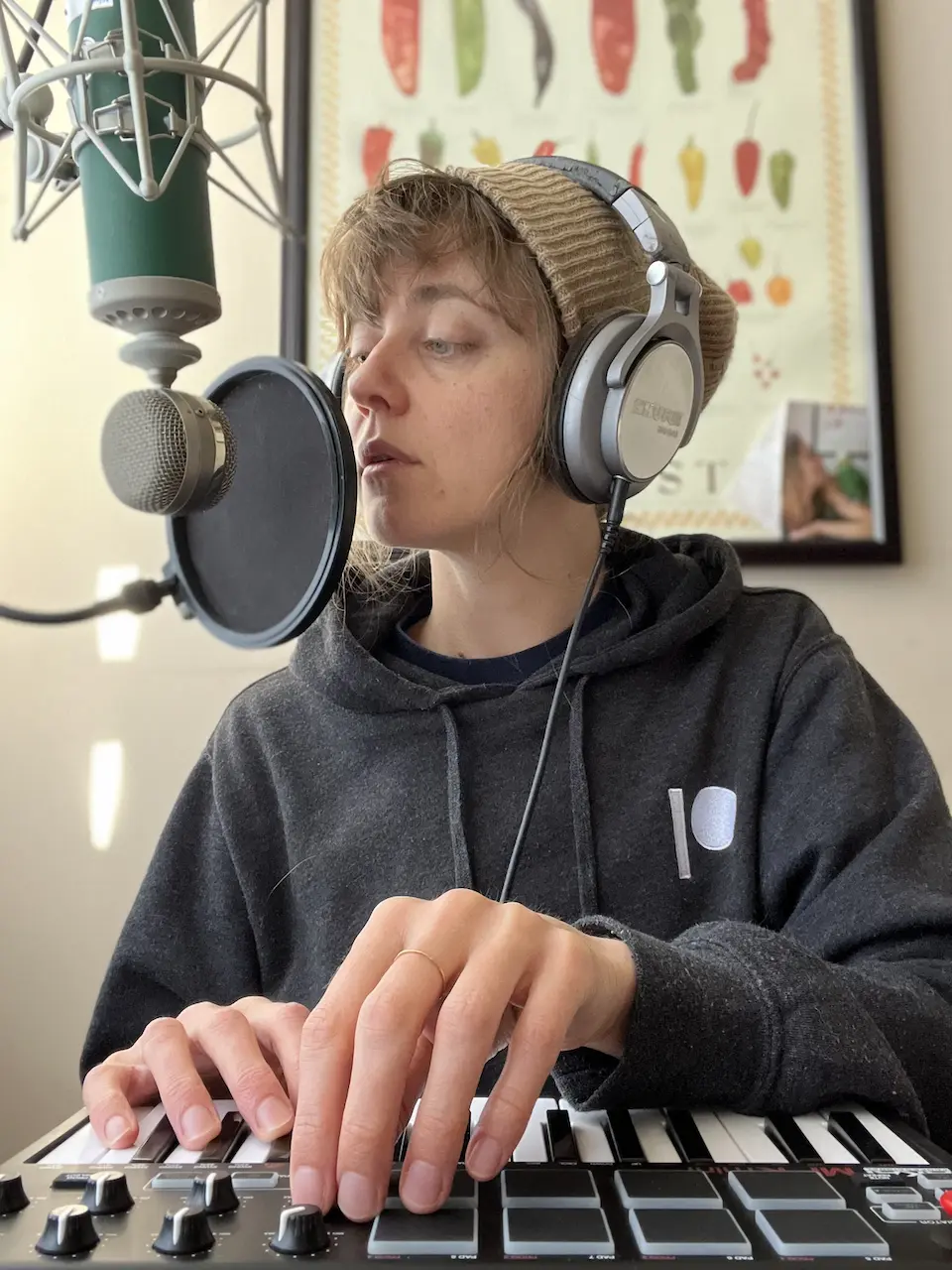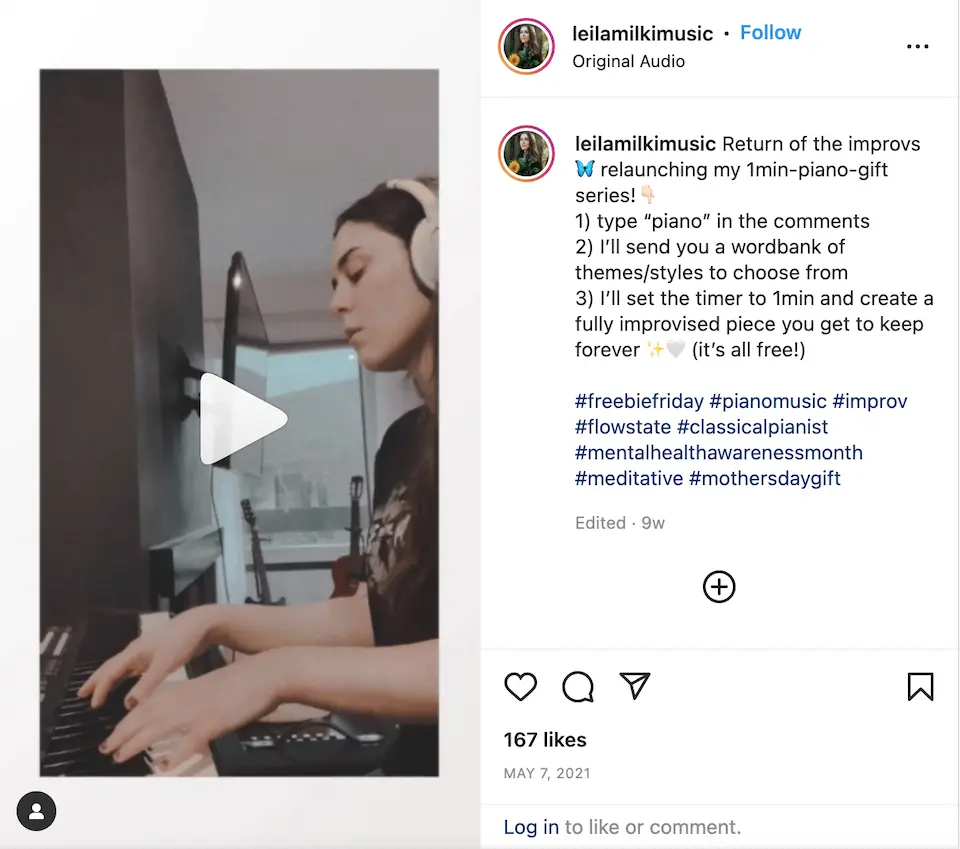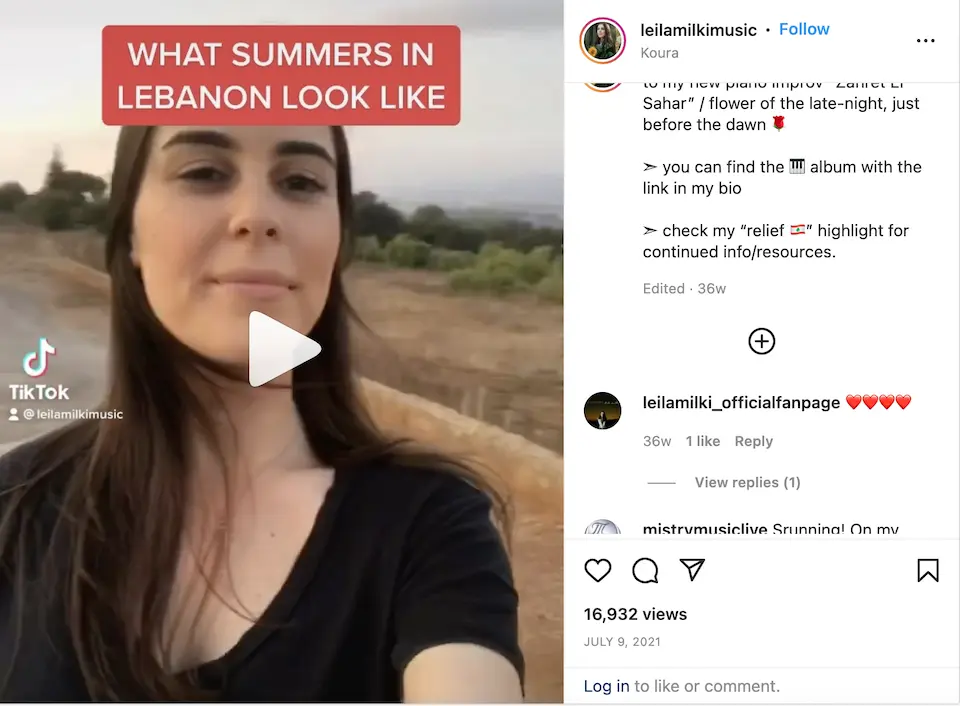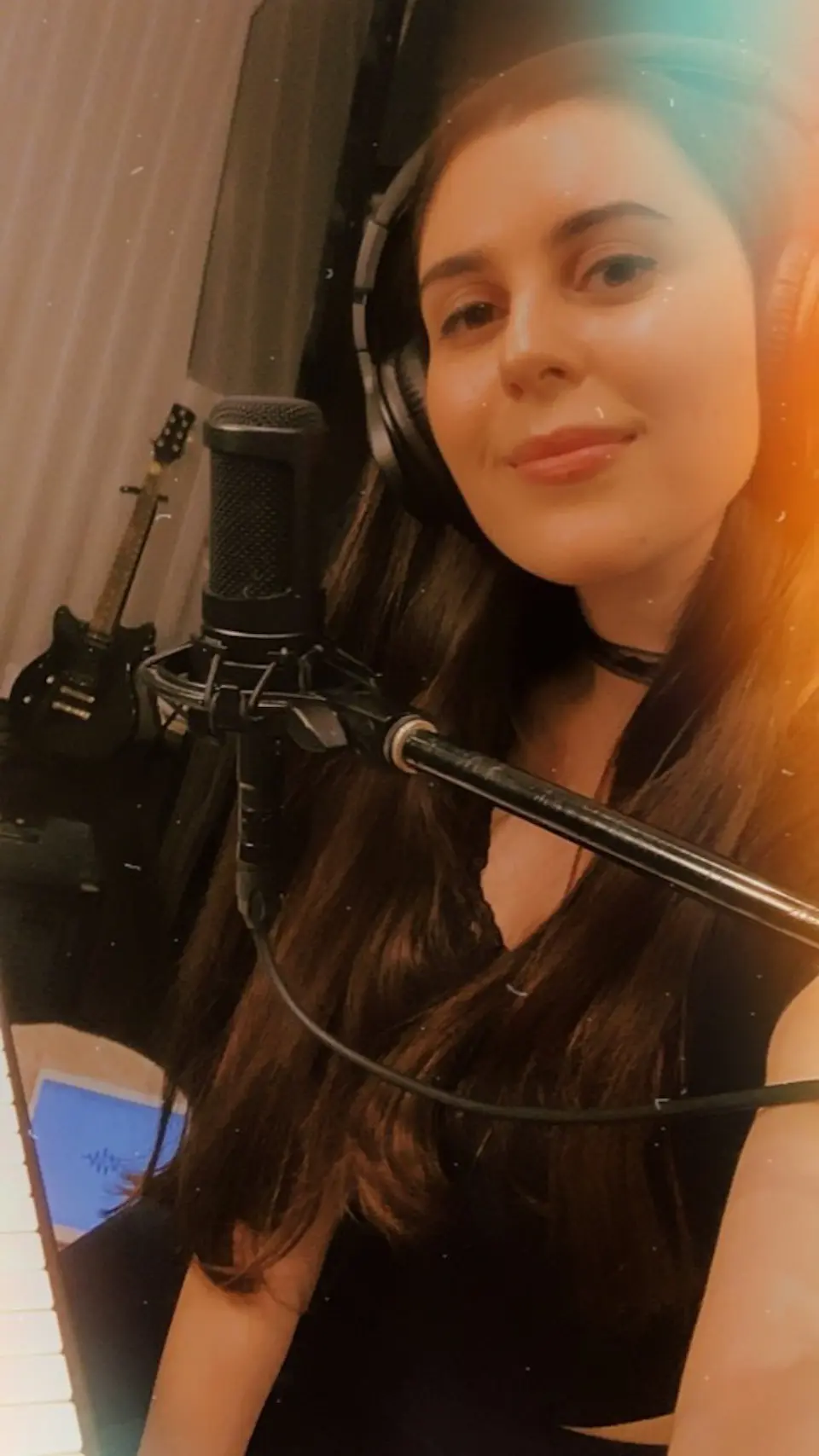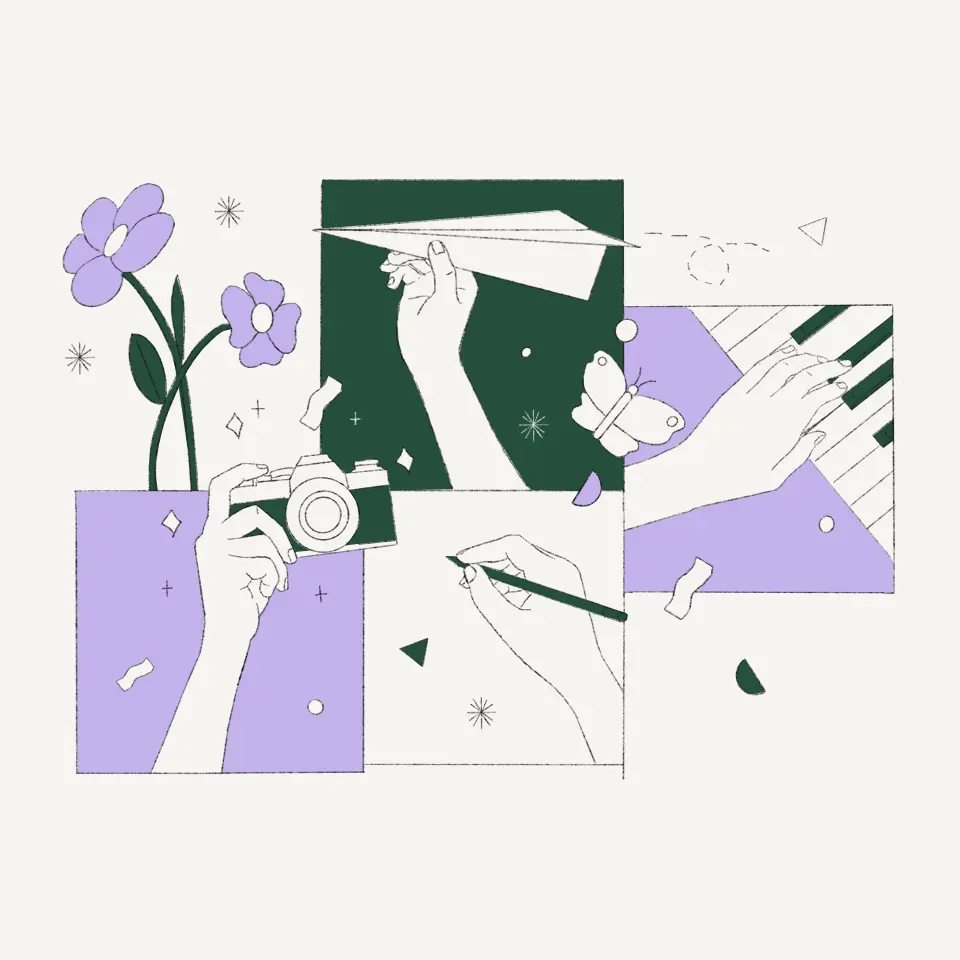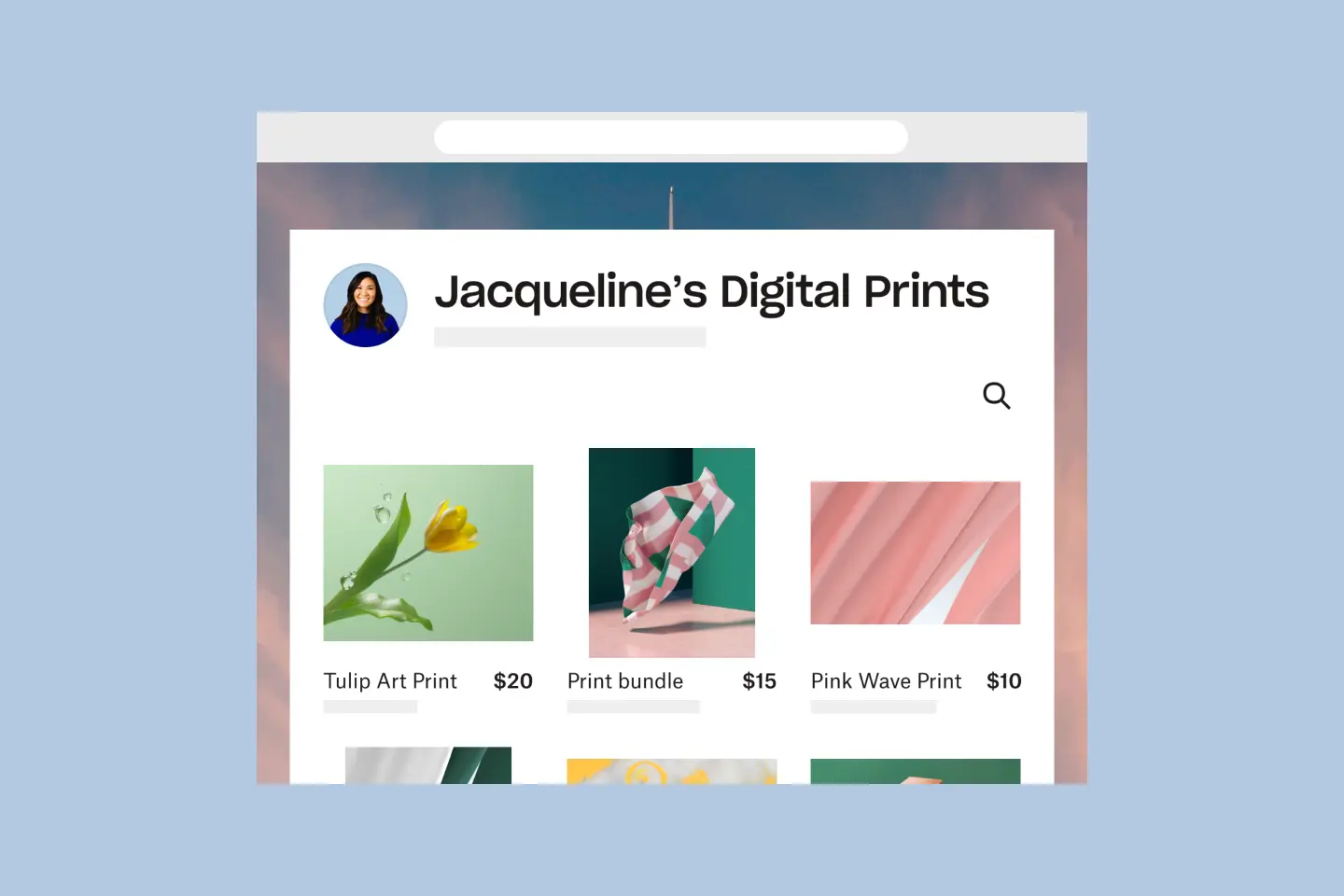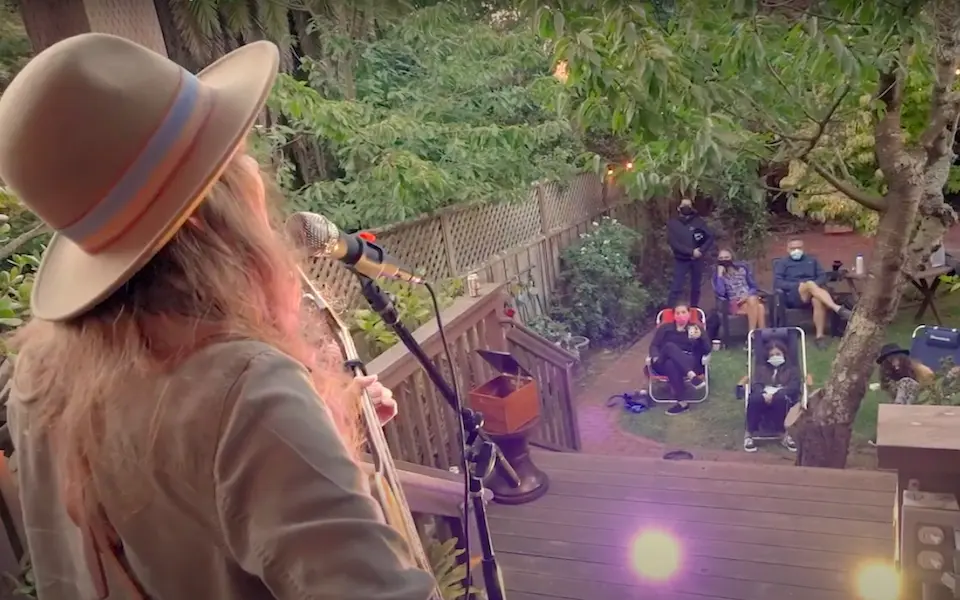
When Megan Slankard was 10 years old, she dreamed of being in The Beatles. But it wasn’t the idea of being rich and famous that inspired her.
“When I first felt the rush of music, I didn't think about the money. I didn't think about the future. I just knew it had to be something that I did,” the San Francisco-based songwriter recalls. “Music is the only thing in my life that keeps me present and grounded. So I never really felt like ‘This is going to be my full-time job.’ I just felt like it was me.”
Similarly, Los Angeles-based singer-songwriter Leila Milki felt more drawn to the sound of piano than the sound of applause. “I was in piano lessons starting at age four or five,” says Milki. “It was always like a sense of home for me.”
Growing up in a Lebanese-American family with a traditional cultural mindset, Milki says she’s the first in her family to veer off the path she was expected to take. Pursuing music as a career seemed like uncharted territory—until she had an epiphany while attending college at USC.
“The turning point was seeing people around me seriously dedicated to their craft and the possibility of transforming that into something lucrative,” she recalls. “Not having any plan B or doubts about it was such a huge mental flip for me. Then I realized there's nothing else I would want to do.”
With the rise of platforms like Patreon, Substack, and Shopify, and new tools like Dropbox Shop, creators now have the ability to monetize their work by selling it directly to a niche group of fans. Here’s how new technology is helping artists stay true to their muse while creating authentic connections with the people most passionate about their work.
Weaving threads into a lifeline
In 2022, the odds against making a living as an indie musician are daunting. Record sales and downloads continue to be diminished by streaming music platforms with infamously stingy artist compensation.
And for the past two years, most musicians lost their main source of income—live performances. In the meantime, many have been trying to figure out how their music can be heard outside of short clips on TikTok and livestreams on Instagram and YouTube.
Despite those obstacles, Slankard and Milki have continued to grow their fanbase and find new opportunities. By adopting a combination of tech tools and platforms, they’ve managed to keep attracting supporters all over the world and develop personal connections with them.
And as author Kevin Kelly predicted in his 2008 essay, when those connections are strong enough, creators only need 1,000 True Fans to earn a comfortable living. Twelve years later, Atelier Ventures founder Li Jin updated that theory, suggesting that the new goal for passion economy creators could actually be 100 True Fans.
These superfans resonate not only with the art but the artist. Instead of buying into one hit song or debut album, they show ongoing support with monthly pledges and subscriptions. This is what enables artists like Milki and Slankard to focus less on what’s trending and more on what they genuinely want to create.
For Slankard, part of the creative process has been figuring out which combination of platforms will work best for her projects.
“I use Dropbox in combination with Patreon to deliver new music and other goodies to my Patrons,” says Slankard. “It's been an amazing tool that allows me to host my entire Patreon catalog—over 85 songs, their lyrics, and song artwork—in a place where my Patrons can access the entire collection.”
Every month, she updates the folder with new creations. “This has been incredibly useful, especially to new Patrons who don't have time to scroll through older posts to listen to previous releases. I also use Dropbox to deliver exclusive and limited time digital creations to particular Patron tiers.”
“Dropbox allows me to host my Patreon catalog in a place where my Patrons can access the entire collection.” —Megan Slankard
In the days before Dropbox and Patreon were available, Slankard spent years building up a loyal local fanbase the old fashioned way—by playing in bars, cafes, and clubs. At 18, she was invited to tour Europe with David Knopfler of Dire Straits, and soon after, was featured on an episode of TLC’s What Not to Wear. That TV appearance attracted the attention of many new fans, including Bay Area radio stations, and members of Counting Crows and Train, who contributed to her album Token of the Wreckage.
Along the way, though, she began noticing that what she found most gratifying was connecting with fans at intimate living room shows, backyard concerts, and online during her Tea Time Hang livestreams with her Patreon supporters.
“Now it feels more like a team, not a fan base,” says Slankard. “That's the most exciting because then I actually get to collaborate with my team, the people who are listening to me.”
She says the platforms she prefers are the ones that give her a closer connection with those teammates—her friends and listeners. “That builds a strong, lasting, lifelong relationship, which I think is more important than sharing something that disappears in a week on a social media.”
Though playing in an arena like the one she dreamed about when she was young would be exciting, Slankard says it's harder to make meaningful connections when you're that far away from the audience. What brings her the most joy now is having conversations with fans who ask questions in the comments of her livestreams.
“It's been really helpful to do a monthly livestream with my friends all over the globe—especially when none of us were able to travel,” she says. “It really kept me going.”
The ripple effect of authenticity
Milki has also witnessed the impact of building community online. She has seen engaged communities of “ride or die” fans sustain entire careers with consistent support—artistically, creatively and financially.
“They show up in numbers to the shows and that translates into this ripple effect of authenticity and genuine community,” says Milki.
Now that the social media platforms are geared more towards short-form videos, Milki has also seen a newer model of TikTok numbers actually translating into community support.
“I've seen good friends actually collect millions of streams and actual email-list subscribers from building a community on TikTok, which is a whole new territory in this day and age,” she says. “You constantly have to re-adjust to find a balance that works for you.”
During the pandemic, Milki began focusing on building community one fan at a time by crowdsourcing ideas for themes to inspire her series of piano improvisations. The outreach was so fruitful that it became one of her most engaging series on her Instagram and Facebook pages.
“Within the TikTok realm, there’s an appreciation and a higher standard for authenticity or weeding out what’s not authentic,” she says.
That means having to balance awareness of which trends are reaching an audience while also sharing honest, emotional, vulnerable content that will resonate.
As a self-described introvert, Milki says she struggles with attention-seeking tactics that seem so pervasive on social media. But when an external event truly hits close to home, she finds that sharing her reaction to the news is a way of connecting to conversations already happening within her community.
One such conversation involved the explosion at the Beirut port in August 2020. This incident motivated Milki to create a series of posts to raise awareness and funds for the people of Lebanon. She’s also found that showcasing her roots through her music and performances has strengthened her connections within the Lebanese-American community, and has even led to career milestones including a placement in the Disney Jr. animated TV series The Rocketeer.
“We were in a very specific age of Instagram,” she recalls. “The culture of showing up that way on social media was a lot more amplified, but I never felt this power of being able to show up and be a resource to my non-Arab friends or my non-Lebanese friends. That was definitely new. I feel purposeful.”
“I saw that showing up on Instagram that way and sharing those resources and funding opportunities had an actual concrete result of collecting thousands of donations and actually reaching people who wouldn't think about this otherwise,” she says. “For those reasons, that was almost revolutionary for me in my work.”
When in-person concerts were cancelled in Spring 2020, Milki needed to figure out new ways to connect with a sense of community while also earning a living. So she began to test the waters of selling bundles of music, personal letters, handwritten lyrics, and behind-the-scenes content.
“When other artists have offered that, I thought it was such a cool, special way to connect with people in a more lasting way,” she recalls.
Milki delivers the bundles through links to a Dropbox folder. “I've been using Dropbox since the beginning of time seemingly,” she says. “It's been a huge resource for sharing recording files and also just organizing very specific folders. If I'm collaborating with others in a band setting or with a string arranger, it's such an amazing way to do that.”
“Sharing those resources and funding opportunities had an actual concrete result of collecting thousands of donations and actually reaching people who wouldn't think about this otherwise.” —Leila Milki
She also set up an online store on Squarespace to tie together elements of her personal music bundles and different tiers of support, and connect them to charity and Lebanese relief efforts. “That's been a nice union of all those things and a way to reach a broader circle for a more meaningful reward on all fronts.”
Updating the definition of success
“My idea of success has changed so much,” Slankard says. “I've never felt more successful than I do now, after two years of pandemic. I mean, it's been depressing. I haven't been able to tour, but it has made me realize what I do have. There's something so valuable about that.”
Slankard says she’s been talking with other musicians about what the pandemic has done to change their idea of success and how to build their music in times like this.
“At this point, fans are just friends to me,” she says. “I want to make more connections with people on this real level, where I know their names. We relate to things through the energy of music.”
Though she loves being on stage and looking out at a sea of faces, Slankard says what feels best is when the energy goes in both directions. “That’s the most important way for me to make fans. I don't even like calling people fans. I just want to meet more people who are excited about music.”
